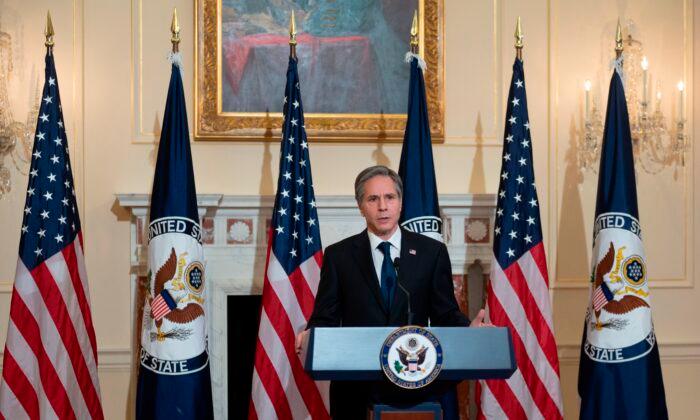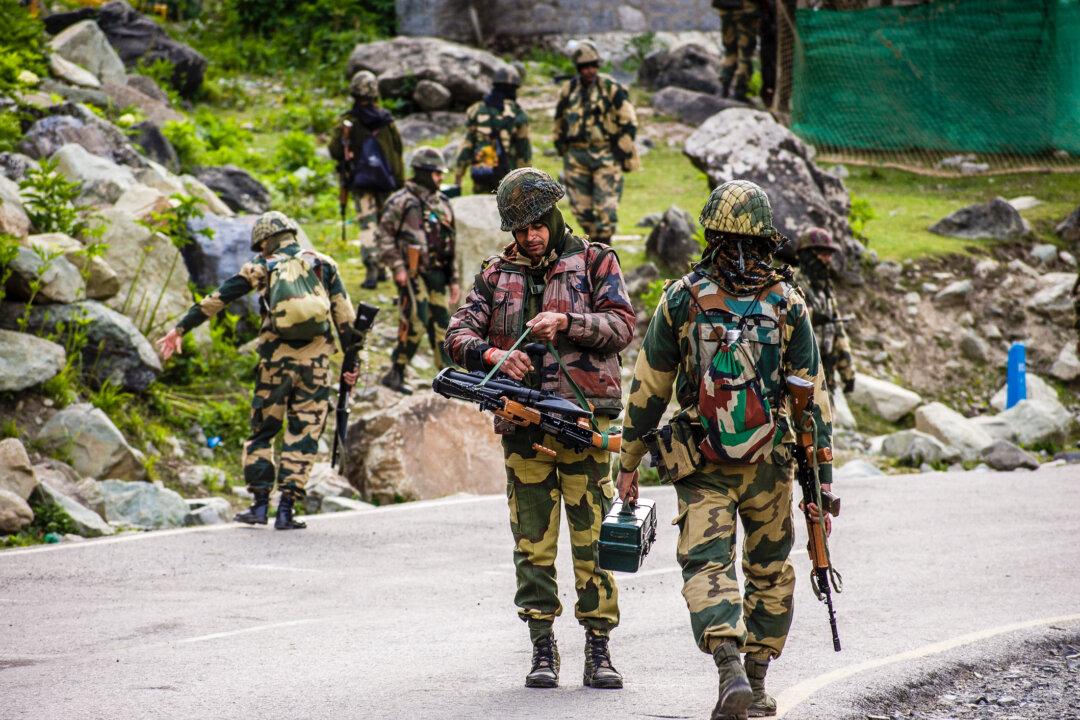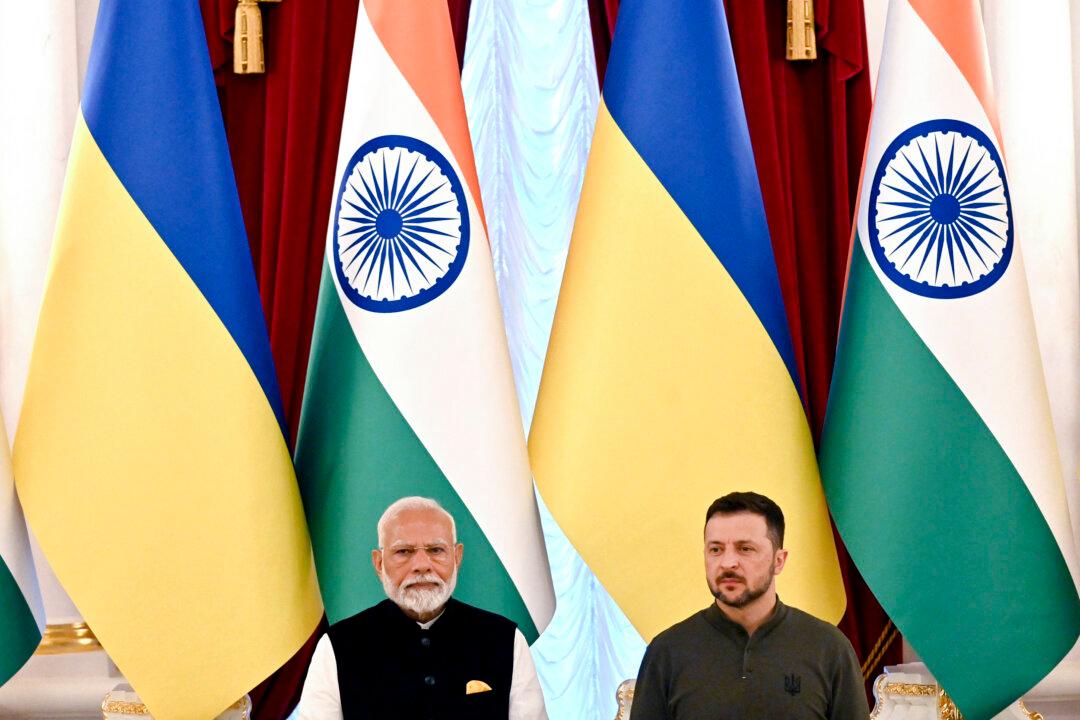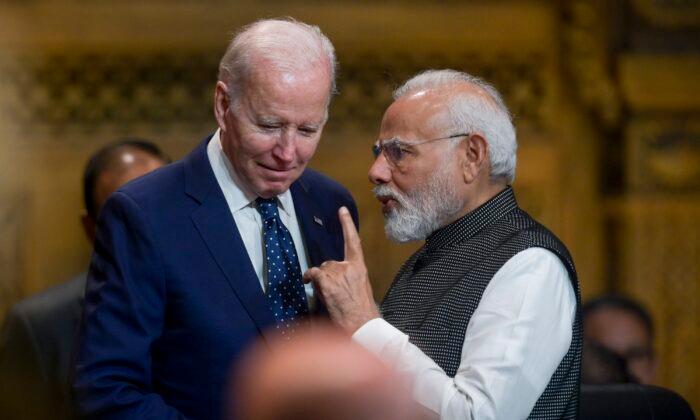NEW DELHI—U.S. Secretary of State Antony Blinken has proposed a U.N.-led meeting with five other nations to support a comprehensive and permanent ceasefire in Afghanistan, in a letter to Afghan President Ashraf Ghani.
The nations would include India, China, Russia, Iran, and Pakistan. Many of these nations are regional adversaries with competing stakes, and experts say that a positive outcome will be difficult to negotiate as, meanwhile, the security threat will only intensify. India will be included in the international Afghan peace process for the first time.
Though Turkey wouldn’t be invited to the U.N. meeting, Blinken in his letter informed Ghani that the U.S. administration will ask Turkey to host a senior-level meeting between the Afghan government and the Taliban in the coming weeks to finalize a peace agreement.
The letter comes as the United States prepares to withdraw a remaining 2,500 troops from Afghanistan by May 1, a year after the Trump administration and the Taliban signed an agreement at Doha to start a political process to finish the war.
In his letter, Blinken had asked for “urgent leadership” from Ghani in the coming weeks, amid a fragile security situation inside Afghanistan.
“Even with the continuation of financial assistance from the United States to your forces after an American military withdrawal, I’m concerned that the security situation will worsen and that the Taliban could make rapid territorial gains. I’m making this clear to you so that you understand the urgency of my tone regarding the collective work outlined in this letter,” Blinken wrote.
Whether the attempt to bring so many stakeholders onto the same platform will be successful is yet to be seen, but all will be closely watching what the United States does, Aparna Pande, director of the Hudson Institute’s Initiative on the Future of India and South Asia, told The Epoch Times over a chat platform.
“If the U.S. plans on leaving Afghanistan without any military presence or support, then each of these countries will make their own plans. If the U.S. plans on having a long-term presence, even if small, then these countries will behave differently,” said Pande, who is based in Washington.
By getting different stakeholders on the same platform, the Biden administration is trying to show the world that its foreign policy will use diplomacy, according to Abhinav Pandya, an India-based analyst on terrorism and radicalization with expertise on Afghanistan issues.
“So we are trying to get Iran on board, we are trying to get Turkey on board, we are trying to get Russians on board. Now we are trying to get China on board. So this is just to convey an image that, no, we are not very isolationist, we are just trying to incorporate all the parties and come to a consensus,” Pandya said.
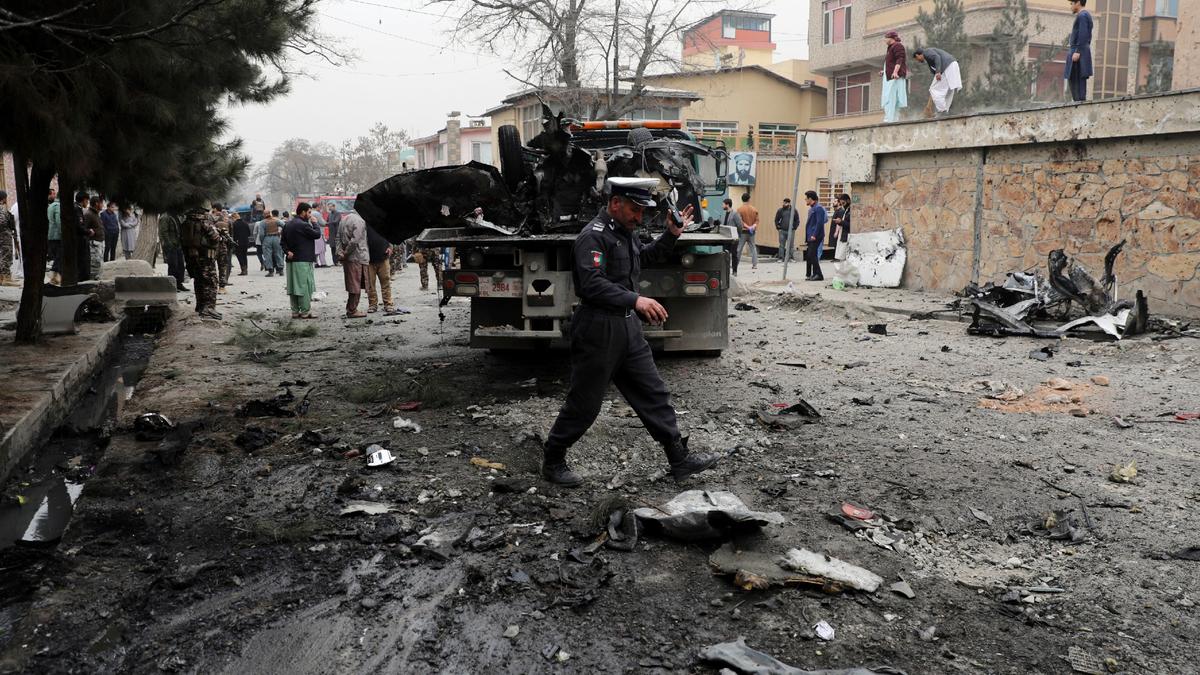
Stakeholders
Anil Trigunayat, a geopolitical analyst with expertise in the Middle East and a former senior Indian diplomat, said the Biden administration is aware of the stakeholders playing positive as well as spoiler roles inside Afghanistan. An attempt to bring everyone together could mean different things for different invitees.“Pakistan has been playing both sides. Iran is an important neighbor of Afghanistan. Russians are keen to have a say in the outcome,” Trigunayat said. “Apart from strategic reasons for a big power, Afghanistan is a major source and problem of narcotics for the Russian youth.
“The U.S., on its part, is keen to leave Afghanistan, and paradoxically other countries do worry about [the U.S.] exit while they did not quite like [its] presence.” He added that for any success to be achieved, all stakeholders will need a common plan for peacekeeping and security.
“[The] U.S. wants to leave ASAP but would not like to abdicate as a defeated power. Also, it wants some sense and semblance of a graceful exit. China and Russia are P5 members, have to be on board for the U.N.-led process and a viable outcome.”
Pande said the United States is trying to bring different adversaries on the same platform “especially those who disagree ... so that they speak with each other and this way find a way out.”
However, there are major pitfalls to consider, according to Pandya, and there is a high likelihood of it not succeeding.
“I feel that this is some kind of a half-hearted attempt to undo what Trump was doing and to reassert the American role in the geopolitical domain,” said Pandya, who is CEO of the India-based think tank Usanas Foundation.
“And by inviting countries like Russia, China, Iran, Turkey, and Pakistan to decide the future of Afghanistan, the U.S. is also laying the foundation for the new great game in Afghanistan involving the countries mentioned above trying to occupy the place left by the U.S.”
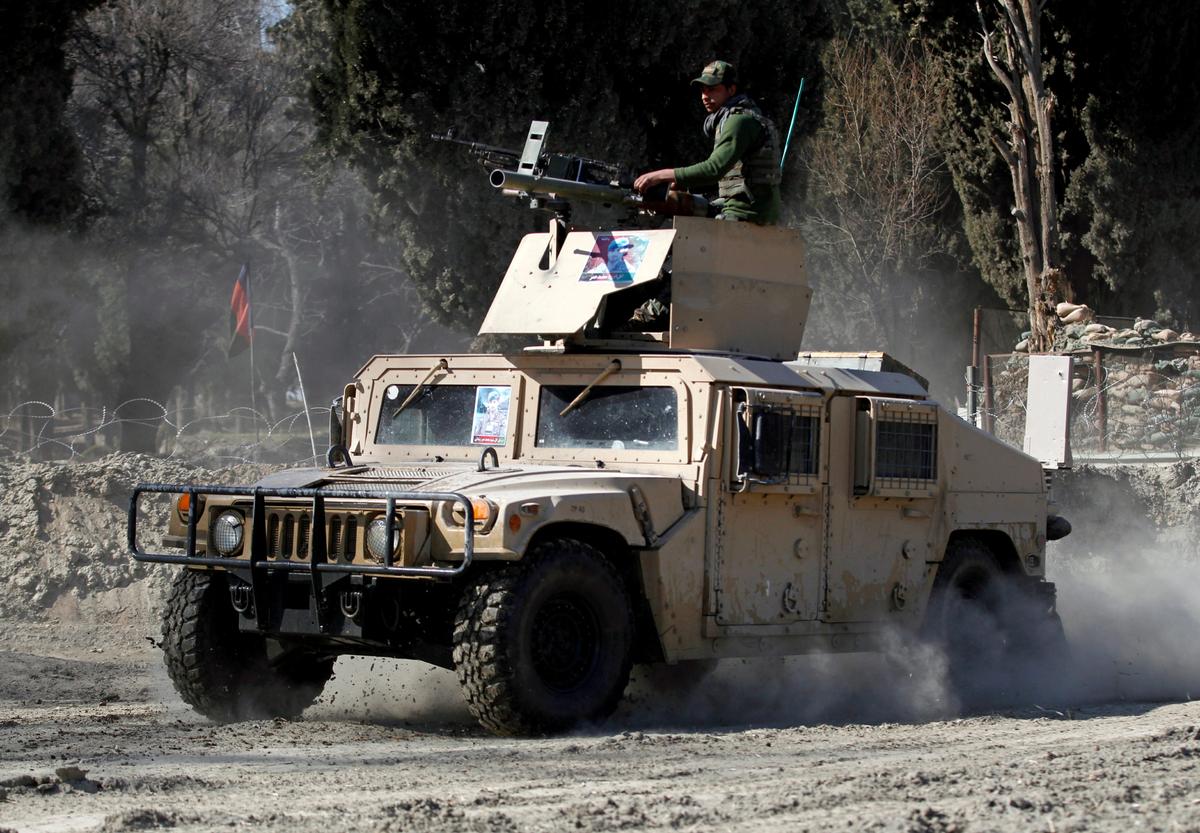
Contradictions and Challenges
Experts said the situation inside Afghanistan is tough. Those invited have different stakes in the region and have often contradicted each other on global platforms, while some invitees have also sponsored terrorism in the region—their genuinely coming together for peace is unlikely.“Once again, the U.S. is repeating the same mistakes. All the players which have been brought to the tables, some of them are the real culprits and the villains in Afghanistan. First of all, Pakistan, as I mentioned, is the devil’s advocate in Afghanistan, while sheltering all the terrorist groups,” Pandya said, adding that other invitees also are sponsors of terrorists inside Afghanistan.
“If you bring them on board, and if you ask them for the solution, how is it going to succeed? Now you have Turkey, [which] is also an accomplice of Pakistan.”
Pakistan’s Interservice Intelligence (ISI) is outlined as the “principal and the underlying cause of pertinent war against Afghan and those who seek to help them,” in a recent paper by Canada’s first resident ambassador to Afghanistan, Chris Alexander.
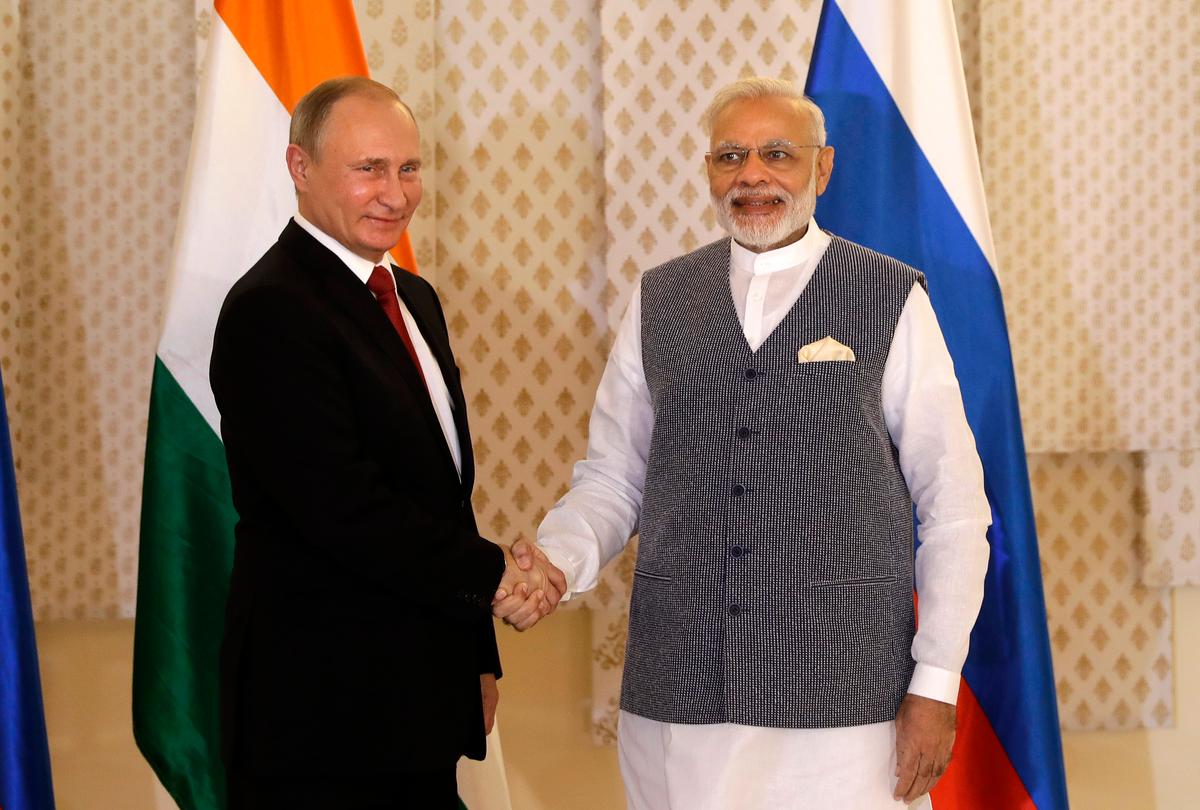
India’s 1st-Time Entry
India has finally been included in the Afghan peace process after six months of diplomatic efforts—and despite the efforts of Moscow, a Chinese ally, to keep the South Asian nation out, according to exclusive sources cited by Indian Express. Efforts to keep India out were at the behest of Pakistan, an Indian adversary, the daily reported.Harsh Pant, an expert on Asia security issues and the head of the strategic studies program at the Observer Research Foundation in New Delhi, told The Epoch Times: “India is [now] formally talked of as a country that needs to be brought into the picture. For a long time, the idea was that India can be ignored [in terms of] what happens in Afghanistan. It is increasingly becoming clear that it can’t be ignored.”
Pandya said India is getting closer to the United States, and Russia has no option but to get closer to Pakistan. India, according to him, is the only regional power that genuinely wants durable peace in the region.
“India has almost nothing to gain from it except some formal participation because Taliban leadership will continue to be controlled by Pakistan,” Pandya said, adding that after the United States leaves Afghanistan, the training of militant groups operating inside India’s Kashmir will likely be shifted to Afghanistan, which has already begun.
“If India thinks that by such conferences they will get some leverage with the Taliban, they are living in a fine illusion.”
